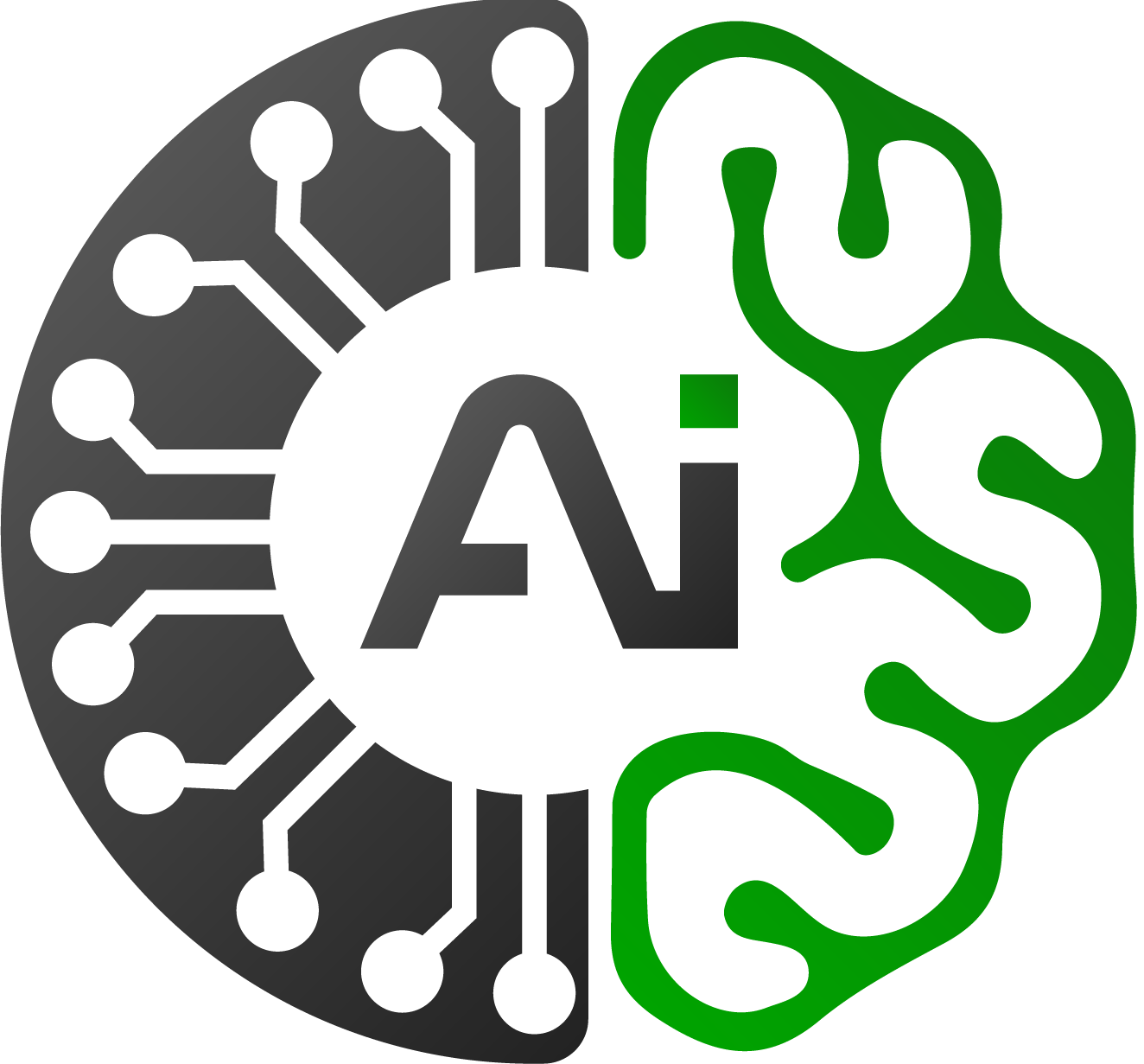
AI in Healthcare, Africa faces a significant burden of disease, with limited healthcare resources and a shortage of skilled medical professionals.
Artificial intelligence (AI) presents a groundbreaking opportunity to revolutionize healthcare delivery across the continent.
This blog post explores the transformative potential of AI in healthcare, examining its applications in diagnosis, treatment, access improvement, and the challenges and opportunities unique to the African context.
We’ll also showcase inspiring case studies demonstrating the power of AI in action.
AI’s Role in Healthcare Transformation
AI offers a multitude of benefits for healthcare systems, including:
- Enhanced Diagnostic Accuracy: AI algorithms can analyze vast amounts of medical data, including medical images (X-rays, MRIs), genetic data, and patient records, to identify patterns and anomalies that might be missed by human doctors. This can lead to earlier and more accurate diagnoses, improving treatment outcomes.
- Personalized Medicine: AI can analyze individual patient data to predict their risk of developing certain diseases and tailor treatment plans to their specific needs. This personalized approach can lead to more effective and efficient healthcare delivery.
- Improved Efficiency: AI can automate repetitive tasks such as scheduling appointments, generating reports, and analyzing administrative data. This frees up valuable time for healthcare professionals to focus on patient care.
- Increased Accessibility: AI-powered telemedicine solutions can bridge the gap between patients in remote areas and specialized healthcare services. This can significantly improve access to healthcare, especially in underserved communities.
By leveraging AI’s capabilities, African healthcare systems can optimize resource allocation, deliver better patient care, and ultimately contribute to a healthier population.
AI Applications in Disease Diagnosis and Treatment
AI is making significant strides in various aspects of disease diagnosis and treatment:
- Medical Imaging Analysis: AI algorithms can analyze medical images with high accuracy, assisting doctors in detecting diseases like cancer, heart disease, and diabetic retinopathy at earlier stages, enabling timely interventions.
- Drug Discovery and Development: AI can analyze vast datasets of chemical compounds and patient data to accelerate the discovery and development of new drugs and treatments.
- Predictive Analytics: AI can be used to analyze patient data and identify individuals at high risk of developing certain diseases. This allows for preventive measures and early interventions, improving patient outcomes.
- Robot-Assisted Surgery: Robotic surgery systems aided by AI can perform complex procedures with greater precision and minimal invasiveness, leading to faster recovery times for patients.
These applications represent just a glimpse of the transformative potential of AI in revolutionizing healthcare diagnosis and treatment across Africa.
Improving Healthcare Access with AI Solutions
The geographically dispersed nature of populations in many African countries creates significant challenges in healthcare access. AI-powered solutions can bridge this gap:
- Telemedicine Platforms: AI can be integrated into telemedicine platforms, allowing remote AI Consulting Services in Africa and reducing the need for travel to distant medical facilities.
- Chatbots with AI Support: AI-powered chatbots can provide patients with basic medical advice, answer questions about medications, and schedule appointments, freeing up human healthcare professionals for more complex tasks.
- AI-powered Diagnostics in Remote Areas: AI algorithms can be deployed in mobile diagnostic tools, allowing for basic health screenings and disease detection in remote areas with limited access to healthcare facilities.
By increasing accessibility and providing basic healthcare services remotely, AI has the potential to significantly improve healthcare outcomes in underserved communities across Africa.
Challenges and Opportunities for AI in African Healthcare
While AI offers immense potential, there are challenges to navigate for successful implementation in Africa:
- Limited Infrastructure: Uneven access to reliable internet connectivity and computing power can hinder the widespread adoption of AI-powered healthcare solutions in some regions.
- Data Privacy Concerns: Ensuring responsible data collection, storage, and usage is crucial to maintaining user trust and building ethical AI solutions in healthcare.
- Lack of Skilled Workforce: There might be a lack of personnel trained in AI and healthcare to manage, maintain, and utilize AI-powered healthcare systems effectively.
- Affordability of Technology: The cost of AI technology and infrastructure can be a barrier to adoption for some healthcare facilities in Africa.
Despite these challenges, Africa presents unique opportunities for AI in healthcare:
- Leapfrogging Legacy Systems: Africa can leapfrog developed nations by directly adopting cutting-edge AI technologies, bypassing the limitations of older infrastructure.
- Data for Specific Diseases: Africa has a high burden of some diseases like malaria and tuberculosis. This creates an opportunity to develop AI solutions specifically tailored to address these regional health challenges.
- Mobile Technology Adoption: Africa’s high mobile phone penetration rate creates a platform for delivering AI-powered healthcare solutions through mobile apps.
By addressing the challenges and capitalizing on the opportunities, Africa can become a leader in the adoption of AI for healthcare transformation.
Case Studies: AI-driven Healthcare Initiatives in Africa
- Imagelyn (Ghana): This Ghanaian health-tech startup leverages AI to analyze medical images for early disease detection. Their mobile app allows healthcare workers, even in remote areas with limited access to specialists, to upload X-rays and receive AI-powered analysis, potentially leading to faster diagnoses and improved patient outcomes.
- Babyl (Rwanda): This UK-based company, in partnership with the Rwandan government, has launched a virtual healthcare assistant chatbot. The AI-powered chatbot provides basic medical advice, triages patients, and schedules appointments, reducing the burden on overwhelmed healthcare facilities and improving access to basic healthcare services, particularly in rural areas.
- InSight (South Africa): Developed by the University of Cape Town, InSight is an AI-powered system that analyzes chest X-rays to detect tuberculosis (TB). This non-invasive and rapid diagnostic tool can significantly improve TB screening and case detection, especially in resource-limited settings.
- Matibabu (Kenya): This Kenyan health-tech company has developed an AI-powered incubator that uses machine learning to regulate temperature and optimize conditions for premature babies. This innovation has the potential to improve survival rates for premature infants in regions with limited access to neonatal intensive care units (NICUs).
These case studies showcase the diverse ways AI is transforming healthcare delivery across Africa.
From early disease detection to improved access to basic services and innovation in neonatal care, AI is addressing critical needs and paving the way for a healthier future for the continent.
The Future of AI in African Healthcare
The future of AI in African healthcare is brimming with possibilities:
- Integration with Wearable Devices: AI can be integrated with wearable devices to monitor vital signs, track health trends, and provide personalized preventative healthcare recommendations.
- Mental Health Support: AI-powered chatbots can offer mental health support and therapy, particularly in regions with a shortage of mental health professionals.
- Drug Supply Chain Management: AI can optimize drug supply chains, preventing stockouts and ensuring the availability of essential medications in remote areas.
- Personalized Treatment Planning: AI will continue to evolve, enabling even more personalized treatment plans based on individual patient data, leading to improved patient outcomes.
By fostering collaboration between governments, healthcare providers, technology companies, and research institutions, Africa can harness the power of AI to build a robust, accessible, and equitable healthcare system for all its citizens.
Conclusion: Building a Healthier Future with AI
AI is revolutionizing healthcare delivery in Africa, offering solutions to address the continent’s unique challenges.
From improving diagnostic accuracy to increasing access to care, AI has the potential to transform healthcare outcomes and empower individuals to take control of their health.
By prioritizing ethical considerations, addressing infrastructure limitations, and fostering innovation, Africa can become a global leader in AI-driven healthcare, ensuring a healthier and brighter future for all.
Here at Cognitive AI Technology, we are passionate about using AI to make a positive impact on healthcare in Africa.
We are actively involved in developing and deploying AI solutions that address critical healthcare needs. Contact us today to learn more about how we can partner with you to build a healthier future!
In the next blog post, we’ll delve into the exciting world of AI in Agriculture, exploring how this technology is transforming food production and food security across Africa. Stay tuned!
